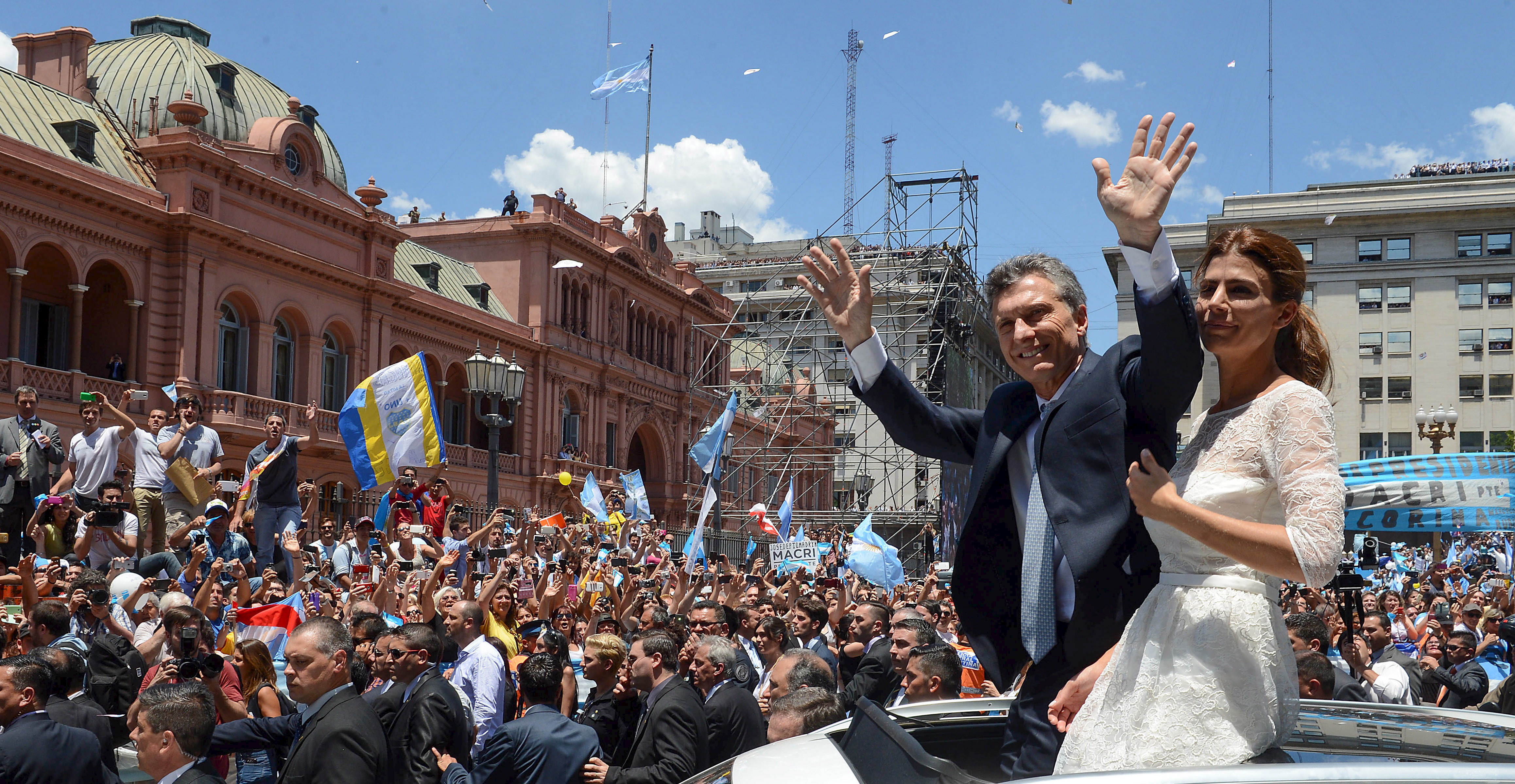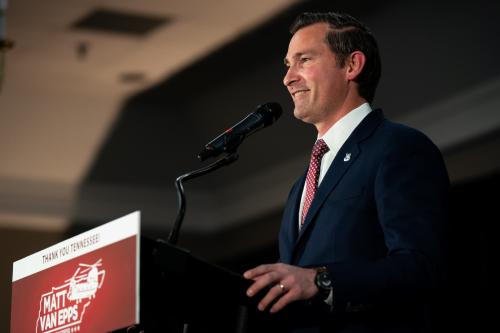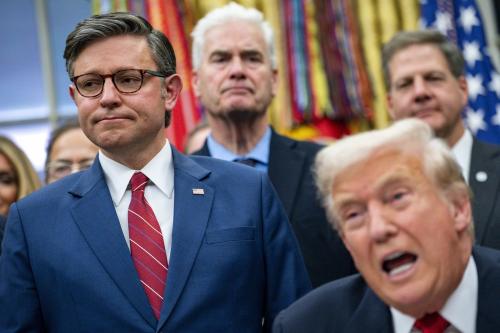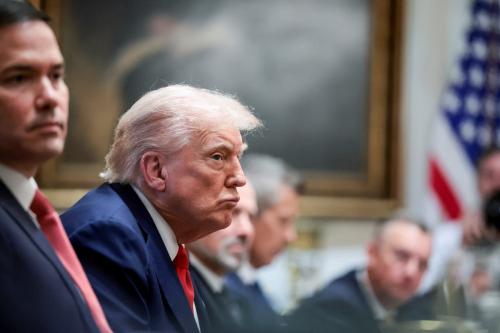The year 2015 brought significant economic challenges and changes to Latin America. Average real annual GDP growth for the seven largest economies slipped into negative territory, led by economic crises in Brazil, Venezuela, and Argentina. Falling global commodity prices, a product of slowing economic growth in China, hit South American commodity exporters particularly hard. But even Mexico, more industrialized and integrated into the broader North American economy, suffered from the drop in global oil prices. The OPEC daily basket price plummeted from an average of $96.29 per barrel in 2014 to $49.77 per barrel in 2015 with the price hovering just over $30 at the end of the year. Foreign investors see many of the region’s economies as a risky bet, and Brazil, the largest economy, has seen its sovereign debt downgraded to junk bond status.
2016 will be the year when the political consequences of the change in the region’s economic fortunes play out. The region’s middle class, which has doubled in size since 2002, faces diminished opportunities, and many of its members lack the accumulated wealth and education to easily weather the present downturn. The region’s vulnerable classes, no longer in critical poverty but not part of the middle class either, face an even more difficult situation.
Disgruntled publics
In these hard times, public scrutiny of government performance has increased. Disgust with corruption by public officials has become an important motivation for social unrest in countries ranging from Brazil and Mexico to Guatemala and Honduras.
Throughout the region, presidents—right, left, and center—apparently lack the political capital to implement needed reforms. Models that privileged redistribution and consumption over growth, savings, and investment are no longer as tenable in a period of economic recession. But it is difficult to end programs that many people have become accustomed to and now depend on, such as subsidized energy prices in Venezuela and Argentina.
In Mexico, an ambitious reform agenda by President Enrique Peña Nieto—which launched energy, fiscal, education, and judicial reforms—has largely stalled in the face of corruption allegations and mismanagement of the grave domestic security situation. In Brazil, urgent economic reforms are needed due to rising inflation, high levels of public debt, and intractable fiscal deficits. Yet politics is paralyzed by the Petrobras corruption scandal and the evolving drama surrounding the possibility of a presidential impeachment. And the list goes on across the region.
Ballot box power
In this context, elections become particularly important mechanisms for addressing popular dissatisfaction. The recent victories of opposition parties or movements in Argentina and Venezuela have led some to predict that the “pink tide” of leftist governments that came to power during the 2000s is receding. However, it is likely that governments of all political stripes will face “punishment” from voters at the ballot box in 2016. Certainly, while some leftist governments have faced (Venezuela) or will face (Ecuador) angry electorates, other left-wing leaders such as Daniel Ortega in Nicaragua and Evo Morales in Bolivia remain popular. In fact, presidents across the political spectrum, from conservatives in Guatemala and Honduras, to moderates in Mexico and Peru, to leftists in Brazil and Venezuela, have faced social protest or unhappy voters.
[I]t is likely that governments of all political stripes will face “punishment” from voters at the ballot box in 2016.
There will be at least 11 elections held across the Americas in 2016, including in the United States, for all levels of government. Democratic governance is by and large consolidated in the region so constitutional processes such as elections offer the main vehicle for change. Elections also offer the possibility of bringing to power new political leaders who have the high political capital needed to implement reform.
To better understand what lies ahead, we should consider the implications of two recent elections: Argentina and Venezuela:
-
In November, Argentine voters ended decades of Peronist dominance in politics and brought a center-right government to power with the election of Mauricio Macri as president. Macri has taken office with a very clear agenda for economic and political reform and is already moving rapidly to implement that agenda. The success or failure of the Macri government will be an important indicator for the future of the region’s reformers. His policies offer a sharp break with the past because they are significantly more economically and politically liberal than the regional norm. If he does succeed, Macri will undoubtedly inspire others in Latin America to compete on similarly liberal reform platforms in years to come.

Argentina’s President Mauricio Macri (L) and his wife Juliana Awada wave to the crowd after after being sworn-in as president in Buenos Aires. Credit: Reuters/Argentine Presidency. - Venezuela faced the region’s deepest economic crisis when voters went to the polls on December 6 to elect every seat in the country’s unicameral legislative body. In what some have called a referendum on Maduro’s presidency, Venezuelans gave the opposition coalition MUD (Democratic Unity Movement) a super-majority in the congress when they elected 112 of their candidates as deputies. Despite initially recognizing the opposition victory, the Maduro administration has now taken measures to limit the power of the opposition. Among other measures, it has challenged the elections of several opposition legislators in an effort to erase the opposition’s super-majority. It also used the lame-duck legislature it still controlled to appoint 13 new supreme court justices (of 32), enabling the government to block opposition legislative initiatives in the courts. And it has rewritten over a dozen major pieces of legislation by decree to limit or erase the legislature’s constitutional powers to conduct oversight. This represents a deep challenge to the possibility of achieving a democratic outcome in Venezuela. If the government gets away with “defecting” so blatantly from the democratic rules of the game, then the opposition—which has followed the internationally endorsed path to power through the ballot box for more than a decade—is more likely to defect in turn. This would deepen Venezuela’s political crisis and increase the risk of violence. Worryingly, both sides are already looking to the military as an arbiter, an unfortunate return to Latin American politicians’ historical habit of “knocking at the barracks door” when they disagree with the outcome of elections.
If the government gets away with “defecting” so blatantly from the democratic rules of the game, then the opposition…is more likely to defect in turn.
North-South bonds
For the United States, the present situation offers both opportunity and risk. Core U.S. interests in the region are generally well protected, and normalization of U.S.-Cuba relations has removed a major diplomatic stumbling block to closer relations with governments across Latin America. While present conditions are likely to foster improved relations with the United States, Latin American governments cannot be good partners in improving regional and global governance when they face political and economic crisis at home. The United States today faces a region whose citizens are largely anxious about the future and will have the opportunity to select new ways forward via elections. So the United States has the opportunity in 2016 to support democracy and prosperity by standing by those who have followed the democratic rules of the game. It should embrace the opportunity to collaborate with the Macri government on its reform agenda, if only because it is a reminder that economic and political change through peaceful constitutional processes is possible. It should also support those in the region (ranging from ex-presidents to legislators to judges to the secretary general of the Organization of American States) who have spoken out in favor of democracy in Venezuela and encourage them to take the next step and actively collaborate to strengthen the newly elected legislature as it seeks to exercise the full range of powers granted to it under the constitution.
The Brookings Institution is committed to quality, independence, and impact.
We are supported by a diverse array of funders. In line with our values and policies, each Brookings publication represents the sole views of its author(s).




Commentary
Why Latin America’s 2016 elections might produce big changes
January 6, 2016